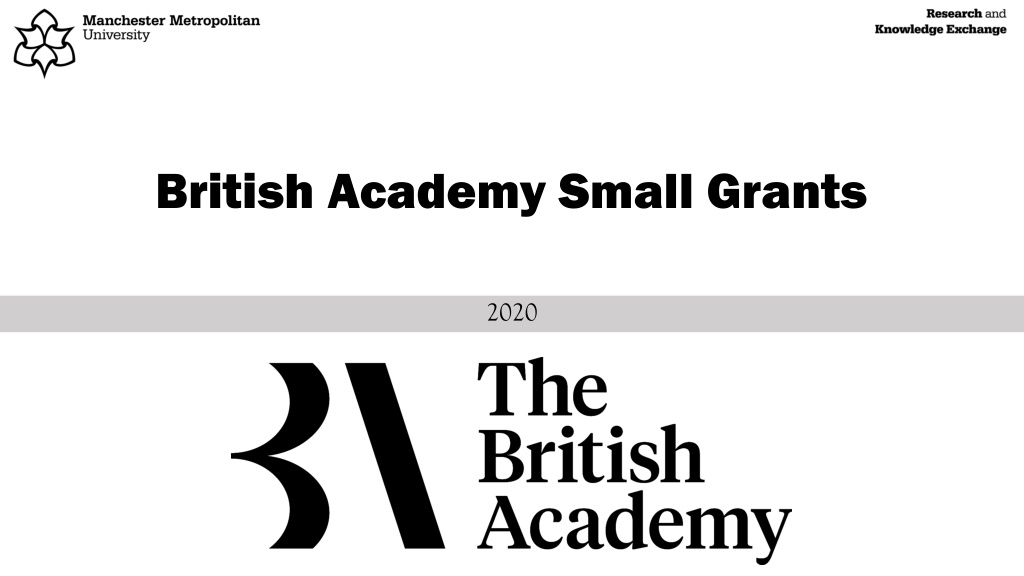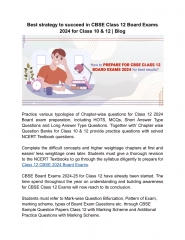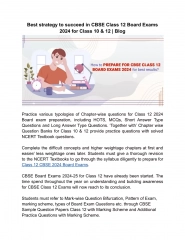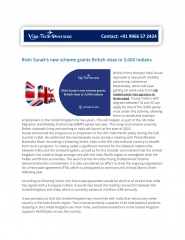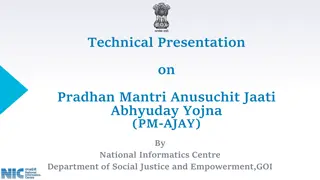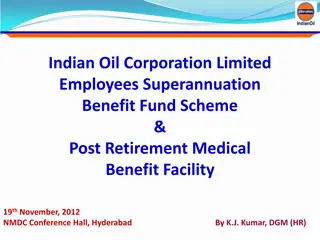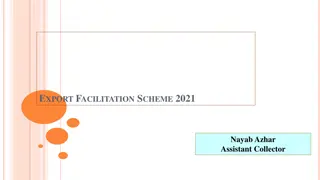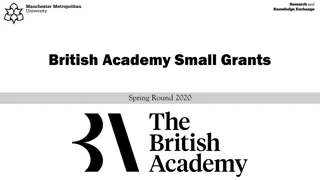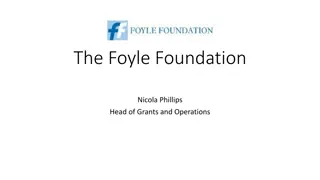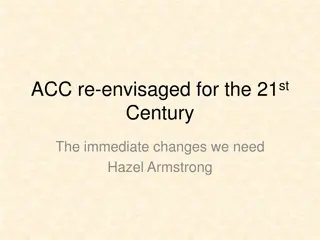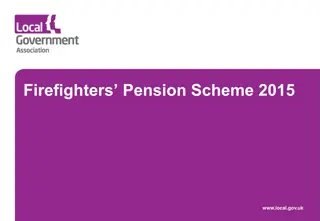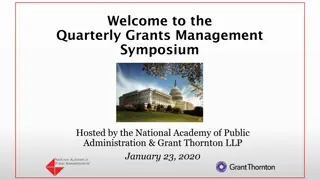British Academy Small Grants Scheme 2020
The British Academy Small Grants Scheme provides funding for primary research in humanities and social sciences. It supports collaborative or individual research projects, and international collaborations with a UK-based lead applicant. The funds facilitate project planning, research costs, and workshops, aiming for identifiable research outcomes. Applicants must be at postdoctoral level, with a max project length of 2 years and up to 2 Co-Applicants allowed.
Download Presentation

Please find below an Image/Link to download the presentation.
The content on the website is provided AS IS for your information and personal use only. It may not be sold, licensed, or shared on other websites without obtaining consent from the author.If you encounter any issues during the download, it is possible that the publisher has removed the file from their server.
You are allowed to download the files provided on this website for personal or commercial use, subject to the condition that they are used lawfully. All files are the property of their respective owners.
The content on the website is provided AS IS for your information and personal use only. It may not be sold, licensed, or shared on other websites without obtaining consent from the author.
E N D
Presentation Transcript
Who are the British Academy? The British Academy is the UK's national body for the humanities and social sciences the study of peoples, cultures and societies, past, present and future. The five strategic aims for the Academy are: To speak up for the humanities and the social sciences To invest in the very best researchers and research To inform and enrich debate around society s greatest questions To ensure sustained international engagement and collaboration To make the most of the Academy s assets to secure the Academy for the future
Why is it the BA/Leverhulme Small Grants? The awards are co-sponsored by the Leverhulme Trust with funding for five years adding to the public funding deriving from the grant made to the Academy via the Department of Business, Energy & Industrial Strategy. However, you should take into account the British Academy s priorities, interests and remit (not Leverhulme s) when writing your proposal.
The British Academy Small Grants Scheme Grants are available to support primary research in the humanities and social sciences. The first recourse for funding should be to your own institution (where applicable). Applications for collaborative or individual research projects are equally welcome under this scheme. Applications from international groups of scholars are welcome, provided there is a UK-based scholar as lead applicant. Funds are available to facilitate initial project planning and development; to support the direct costs of research; and to enable the advancement of research through workshops or visits by or to partner scholars.
The British Academy Small Grants Scheme Grants are not intended to support interchange between UK and overseas scholars where there is no planned programme of activity to meet a clearly specified research objective All applications should demonstrate that funds are sought for a clearly defined, discrete piece of research, which will have an identifiable outcome on completion of the Academy-funded component of the project. The remit of BA funding schemes does not include primarily practice- based outputs such as in musical composition and performance, visual practice, creative writing, and filmmaking. Such outputs will be considered to fall within the BA's remit only when they form part of an integrated project of demonstrable critical or historical significance.
Practicalities Must be at postdoctoral or equivalent level in the fields of the humanities and the social sciences. Postgraduate students are not eligible to apply. Up to 10,000 Project length of up to 24 months (2 years) Can have a maximum of 2 Co-Applicants who are joint directors of the project with equal responsibility for the academic management of the project. Other participants in a project, whose involvement does not equate to being a co-applicant should be named as Other Participants in the relevant section
The Budget The scheme supports direct research expenses such as*: Travel, accommodation, local travel and subsistence (set at a maximum of 100pd) Workshop costs such as refreshments/catering/room hire Exhibition costs such as reprographics/room hire/materials Research Assistance Transcription Consumables Participant Incentives Conference attendance (where used for dissemination) *this is not an exhaustive list
The Budget As a charitable funder the British Academy do not pay fEC (full economic cost) Therefore we cannot recover the university estates or indirect costs We also cannot recover staff salaries. Any time spent delivering the project will be taken from your existing research allocation
Example Budget YEAR ONE YEAR TWO Return flights MCR to Berlin (research trip 1) ( 300) plus airport transfers ( 50) 350 Return flights from MCR to @ [named] European Conference ( 300) plus transfers ( 50) x 2 conference 700 Accommodation, subsistence, local travel in Berlin @ 100pd x 7 days 700 Accommodation @ [named] European Conference @ 100pd x 4 days x 2 conferences 800 Archive consumable costs (printing/photcopying etc.) 100 Conference fee x 2 conferences 700 Entrance fee for archive 17.50 Transcription @ 1.20 per minute x 60 minutes x 10 interviews 720 Return flights MCR to New York (research trip 2) ( 500) plus airport transfers ( 50) 550 Accommodation, subsistence, local travel in New York @ 120pd* x 7 days 840 3,277.50 2,200
Typical Project Pilot projects that seek to collect primary data Undertake archival work Conduct a series of interviews Conduct surveys Hold workshops to work with participants to gain understanding/share knowledge
Typical Outputs The British Academy preference more traditional academic outputs such as* Journal Articles Conference Papers Book Chapters Monographs However, you could also include (in conjunction with some of the above)* Databases Toolkits Websites Blogs Podcasts Policy Briefings/Papers *This is not an exhaustive list
The Application Applications are submitted via Flexigrant (BA s online application platform) Co-Applicants must create Flexigrant accounts to be linked to the proposal You can add your RKE support as a contributor who will then complete the finance sections on your behalf You add your external referee as a contributor who will then complete their reference* *NOTE! YOU CANNOT SUBMIT YOUR APPLICATION WITHOUT YOUR REFEREE HAVING COMPLETED THEIR REFERENCE Application consists of: Abstract (150 words) Proposed Programme (1500 words) Plan of Action (800 words) Planned Research Outputs (500 words)
Top Tips! Read examples of previously successful BA Small Grant applications. You can find these on the RKE Sharepoint: https://stummuac.sharepoint.com/sites/Successful-Research- Proposals/SitePages/Home.aspx Please ask your Research Development team for any additional examples OR an application template Think about, and line up, your referee as early as possible Be as detailed as possible throughout your application. Answer the WHO/WHAT/WHERE/WHY/WHENs RKE have a template of the application enabling you to work offline
Internal University Processes All external RKE projects must be recorded and approved on Worktribe before external submission is permissible Internal approval is sought via Worktribe on your behalf by the RKE. Approval is required from the following 3 signatories: 1. UCRKE (University Centre for Research and Knowledge Exchange) Head 2. Faculty Head of RKE 3. Director of RKE or nominated delegates You should allow 3-5 working days to complete this process It is university policy that any research proposal over 10,000 (therefore not applicable to BA Small Grants) must be formally peer reviewed however; Please check with your RKE Contact whether there are any internal processes for this scheme including Head of Department approvals, informal peer reviews or faculty timetables
Questions and Contacts Questions regarding the scheme should be directed to Rebecca Hewlett in the first instance. Rebecca Hewlett Research Development Officer R.Hewlett@mmu.ac.uk
